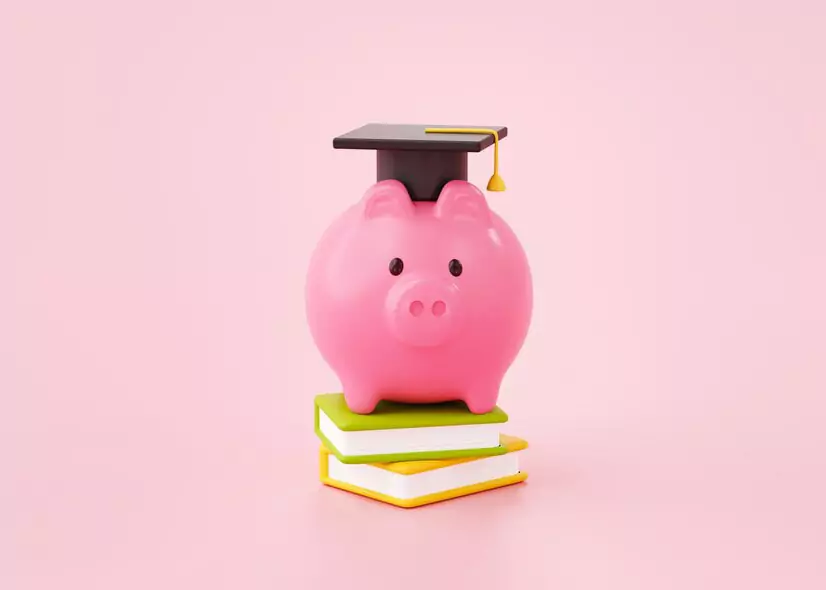
Financial planning, especially for significant future expenses like college tuition, can be a daunting concept for adults, let alone children. However, a progressive program in New York City is working to change this, encouraging children to start saving for college as early as kindergarten.

✅ AI Essay Writer ✅ AI Detector ✅ Plagchecker ✅ Paraphraser
✅ Summarizer ✅ Citation Generator
Key Takeaways:
- The “Save for College” program, run by NYC Kids RISE in partnership with the Department of Education, is teaching financial literacy to children from kindergarten.
- Rising sixth graders are learning to save for their college tuition, with nearly 3,300 students collectively saving over $1.26 million since 2017.
- Research indicates that even a small balance in a college savings account can significantly boost a student’s chances of pursuing higher education after high school.
- Early financial education encourages responsible financial behavior and fosters anticipation for higher education.
The Pioneering Approach to College Savings
NYC Kids RISE, a nonprofit organization, has partnered with the Department of Education to implement an innovative “Save for College” program. The initiative aims to foster a culture of saving for college amongst students, starting as early as kindergarten. This program offers NYC Scholarship Accounts to students to kickstart their saving journey. Since its inception in the 2017-18 academic year, almost 3,300 rising sixth graders have collectively saved over $1.26 million for their future education.
The program simplifies the process of saving and is extremely user-friendly. As Celeste Lawton, a parent, describes:
“I did my own research and found out that basically, you had to do nothing… The community organizations — nonprofits — they give the money to the kids, and it goes straight into their accounts.”
A Promising Impact Beyond Financial Security
Research indicates that the “Save for College” program’s impact extends beyond financial security. Notably, the presence of a college savings account, even with a minimal balance, significantly augments a student’s likelihood of pursuing education after high school. This assertion is backed by an insightful study which found that “a low- or moderate-income child with less than $500 in a college savings account is more than three times more likely to enroll in college and four times more likely to graduate than a child with no account.” The program offers more than just monetary aid, It infuses students with hope and aspiration, providing a sturdy platform for their dreams to take flight. As Celeste Lawton poignantly put it, the account amounted to “a promise for the future.”
The Importance of Early Financial Education for Children
Early financial education for children is not just about teaching them to save money; it’s about instilling them with a holistic understanding of money, savings, and future financial responsibilities. These concepts are fundamental to children’s future financial behavior, economic stability, and independence. As such, nurturing these financial habits and understandings from a young age is pivotal.

Moreover, encouraging young children to save for their college education helps create anticipation and aspiration for higher education. It instills the belief that college is within reach, which can have a significant impact on a child’s academic trajectory. NYC Kids RISE’s executive director, Debra-Ellen Glickstein, encapsulated this sentiment, stating that this approach ensures that “the message of expectation, the message of what’s possible, is reinforced from different directions.”
Early financial education also fosters a sense of empowerment amongst children. By teaching them the value of money and the concept of saving, children become more confident and responsible, and they feel more in control of their future. Indeed, as Caileigh’s experience demonstrates, “There was a lot of work to get to that amount of money.”
| Benefits of Early Financial Education 🧑🎓 |
|---|
| 🏦 Builds a culture of savings |
| 👍 Encourages responsible financial behavior |
| 🎓 Creates anticipation and aspiration for higher education |
| 💡 Reinforces positive expectations and possibilities |
| 💪 Fosters a sense of empowerment among children |
The “Save for College” program in New York City demonstrates a progressive approach towards financial education and planning. This initiative not only cultivates a culture of saving but also enhances students’ anticipation and aspiration towards higher education. Its influence extends beyond simple monetary benefits, fostering a supportive community that champions education.
Read more:
Transforming NYC Public Schools: A Comprehensive Approach to Resource Allocation
New District Rules Prohibit AI-Powered Homework Assistance for Denton ISD Students
Congress to Support Proven Education Program to Fix College Dropout Crisis
Follow us on Reddit for more insights and updates.





Comments (0)
Welcome to A*Help comments!
We’re all about debate and discussion at A*Help.
We value the diverse opinions of users, so you may find points of view that you don’t agree with. And that’s cool. However, there are certain things we’re not OK with: attempts to manipulate our data in any way, for example, or the posting of discriminative, offensive, hateful, or disparaging material.